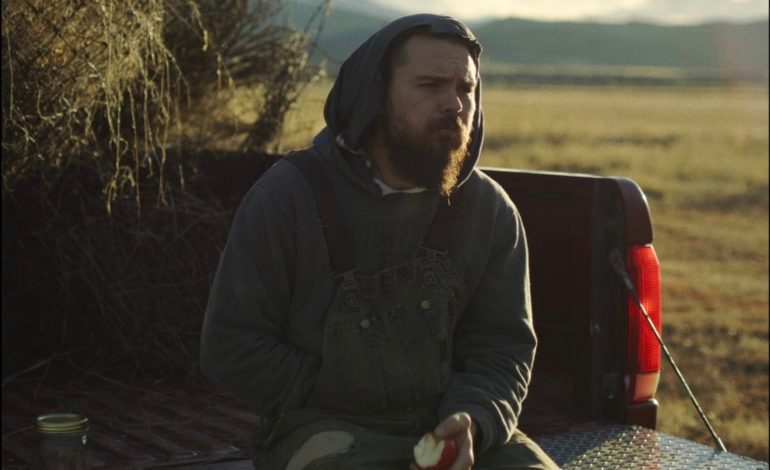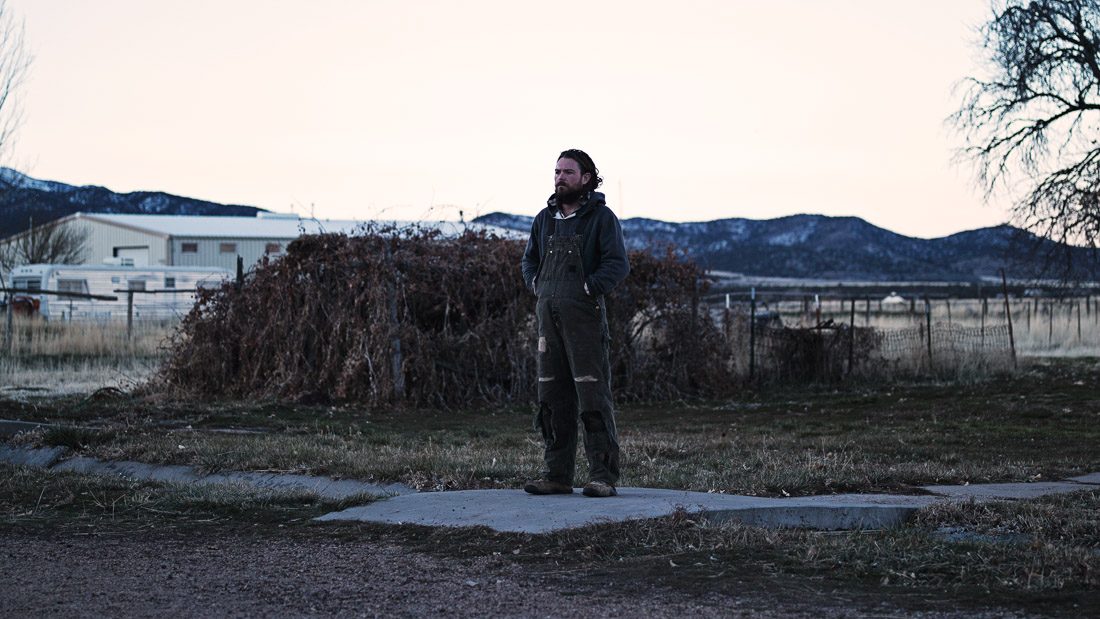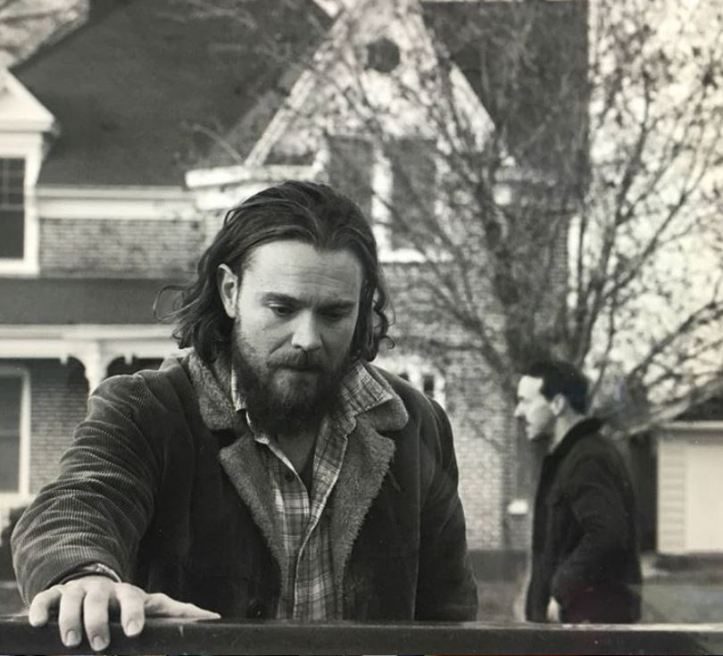

The Killing of Two Lovers is the first solo feature film from director Robert Manchoian, an intentionally small and observant look at how the life of the protagonist David collapses during the course of an undefined period of separation from his wife Niki. The film was shot in Kanosh, Utah, a desolate small town towered over by mountain ranges, as fitting a locale as any to probe between the ears of a character who finds himself unmoored from what gave him purpose, his wife and kids. We aren’t given any insight as to why the marriage dissolved, placing us in the same sense of frustrated unknowingness that David is in, but then there’s the title, it’s a teasing anticipation especially when, in the opening shots, we move from two intimate close-ups to a shot of David standing over his wife’s bed with a gun pointed at her.
What the film does exceptionally well is articulate a sense of place and space, the 100 yards between David staying at his father’s house and his former house where his wife and children live, the windswept parks and roads, the lazy rhythms of the convenience stores in the middle of nowhere, all of these things combine to ground the viewer in a place that actually feels like people live in it, a rarity in contemporary American films by and large.


Clayne Crawford appears in The Killing of Two Lovers by Robert Machoian, an official selection of the NEXT program at the 2020 Sundance Film Festival. Courtesy of Sundance Institute | photo by Oscar Ignacio Jiminez.
All photos are copyrighted and may be used by press only for the purpose of news or editorial coverage of Sundance Institute programs. Photos must be accompanied by a credit to the photographer and/or ‘Courtesy of Sundance Institute.’ Unauthorized use, alteration, reproduction or sale of logos and/or photos is strictly prohibited.
The cinematography is made up primarily of uncomplicated long takes, deeply observational but the effect is rather one-dimensional, the primary formal conceit involves slowly moving the camera forward, and that becomes rather trite once we have seen it multiple times throughout the film. The main issue is that the pacing is languorously slow, often sludging through scenes in a way that presumably aims at a sort of realism, but in this deliberate sidestepping of dramaturgy, it cannot make up for it with any sharpness of insight. Oftentimes the long takes will crescendo, a wide shot of David playing with toy rockets with his kids ends in his daughter exploding and having a shouting match with her father for example, but these rare bursts of emotion feel rather flat, stripped of any fangs that could possibly sink into a viewer.
There is a heavy reliance on the discordant score to signal oncoming dread or mimic a subjectivity within David, but again, this feels more like a deliberate attempt to ‘artify’ the proceedings without paying any real attention to how it functions within the film. A scene where David comes home after seeing his wife’s new boyfriend come to her house has the effect of near parody when all the sound drains out aside from a swooshing score and he lashes in his childhood bedroom at a boxing mannequin, while his father sits on his bed and quietly watches.


In its brevity, the film’s script issues come to the fore, every scene contains chunks of exposition sprinkled clumsily in with the emotional beats that it is trying to hit. This is belied by the strength of the performances, Clayne Crawford is stands out in his anguished glares and physical performances, always on the verge of some sort of breakdown but guarding feelings intensely until he is alone. Sepideh Moafi as Nikki isn’t given much to do besides provide a calm and realistically conflicted foil to David, but she holds her ground admirably within a rather thankless role, always wearing a weary concern on her face and approaching difficult situations without a shred of condescension.
The purest joy in the film is the three boys, all Manchonian’s own children, who are incredibly adorable when they pop up on screen, and have a natural chemistry that cements the relationship of the family in such an important way (I’d imagine being brothers helps). A certain long take during the ride to the park for some rocket shooting has them playing off each other in a way that puts the scenes between the adults almost to shame, totally responsive acting that is rather hard to teach anyone, much less children, so even in a film focused on the dark cloudiness inherent to a dissolving relationship, the scene totally stands out. The teenage daughter Jesse, played by Avery Pizzuto, does not come off as well, it is your stereotypical petulant teenage girl and she can’t really get past the emotive clumsiness present within the script. Again it is admittedly a rather thankless role, and her protestations hold little weight in the film’s design, it really just serves as an attempt to push back against the son’s childish indifference that falls a little flat.
Verdict: 3 out of 5 stars
The modest aims of this film are admirable, and while it isn’t executed in the most prodigious manner, there is enough here that sticks, particularly in the performances. Films such as these are worth checking out over the latest bloated studio fare, there is a perspective here worth pondering.
